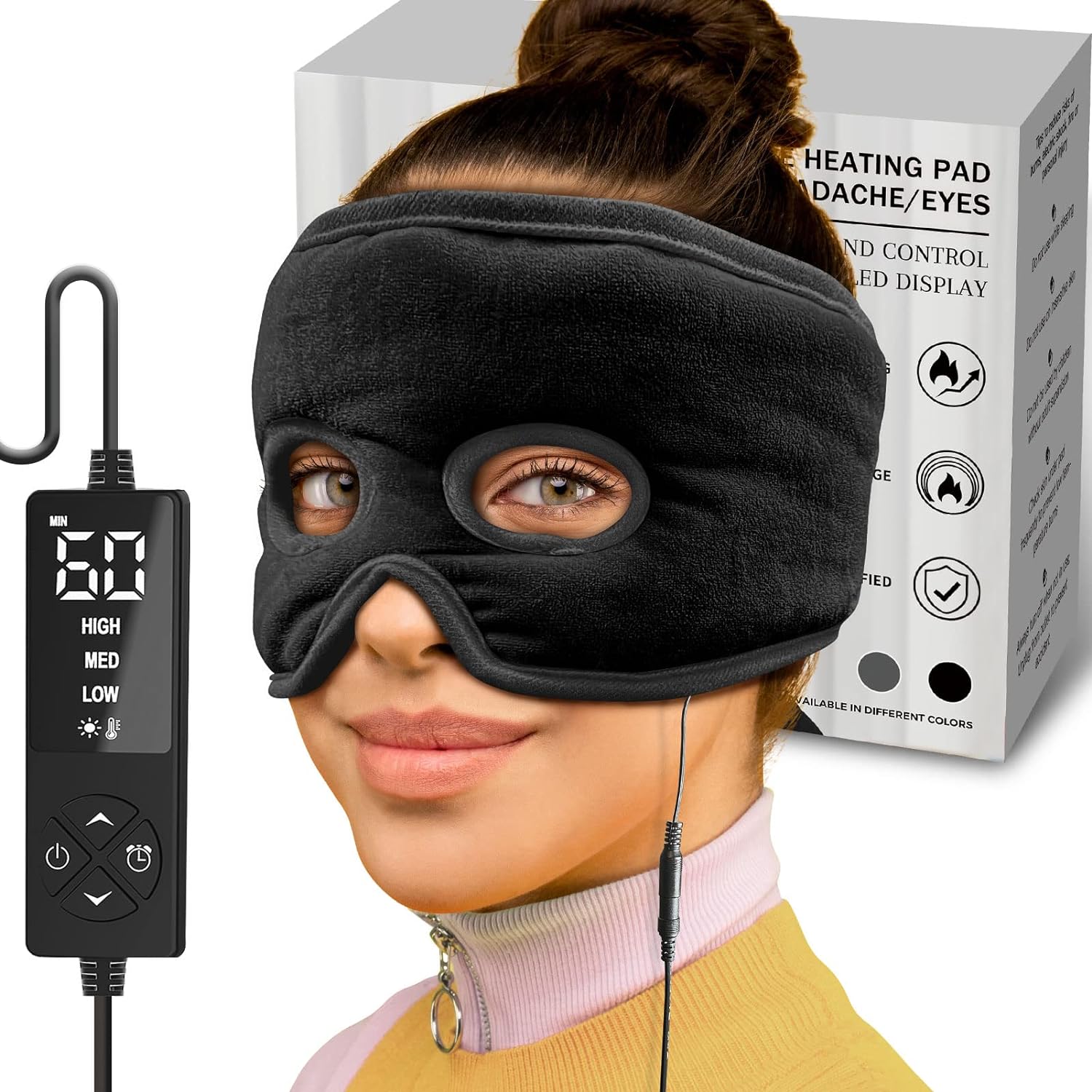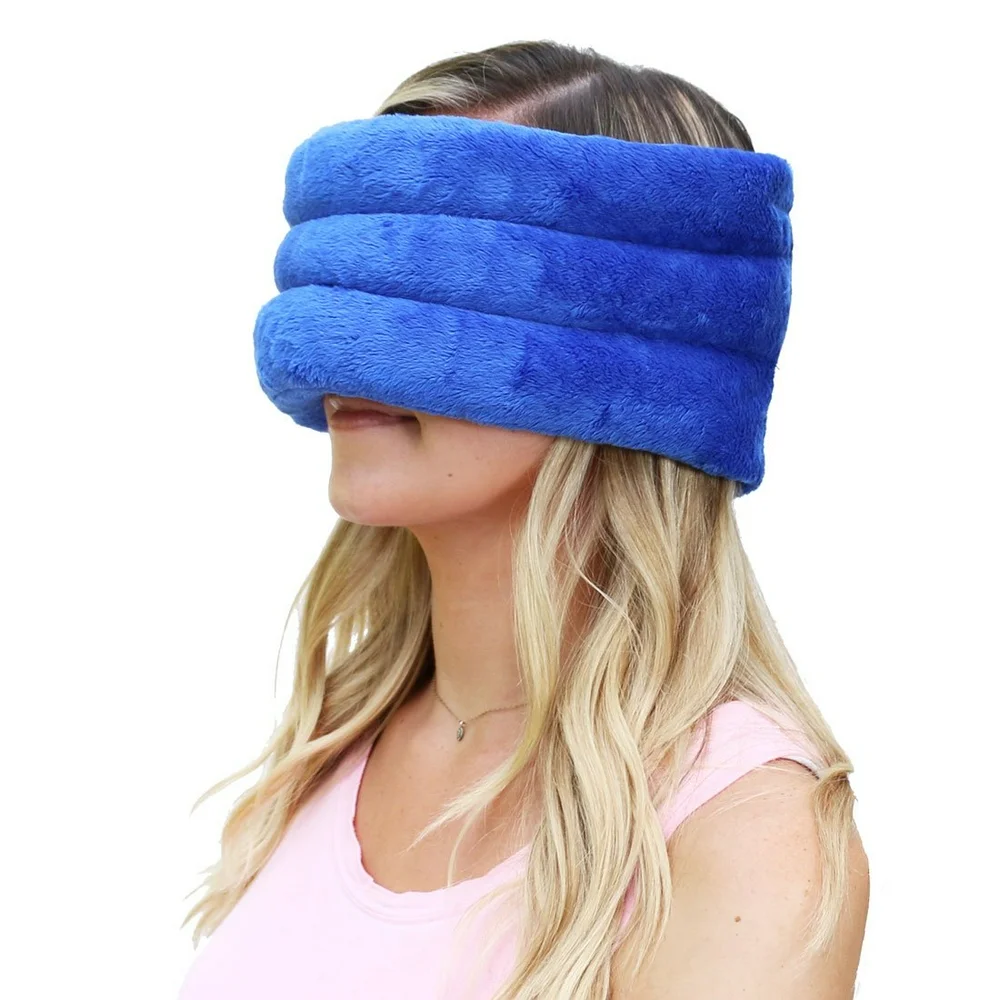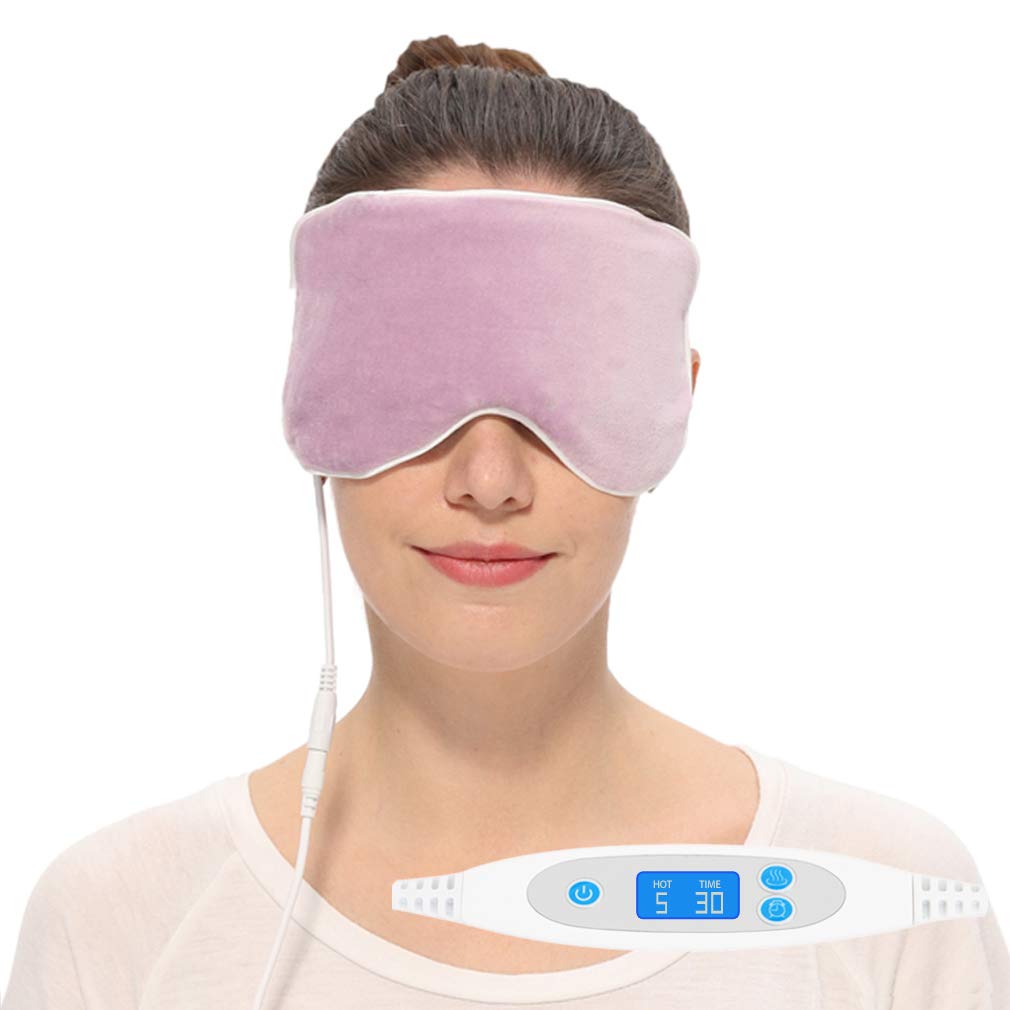Heating Pad for Sinus Infection: Effective Remedy?
Sinus infections can be incredibly frustrating and debilitating, causing symptoms such as facial pain, congestion, headaches, and pressure around the eyes and cheeks. While various treatments exist, one commonly recommended home remedy is the use of a heating pad. But is using a heating pad for sinus infection truly effective? This article delves into this question, exploring the benefits, potential risks, and proper usage of heating pads for alleviating sinus infection symptoms. Let’s uncover how heat therapy can be incorporated into your sinus infection management strategy.
Understanding Sinus Infections
Sinus infections, also known as sinusitis, occur when the nasal cavities become swollen and inflamed.
Symptoms of Sinus Infections
Common symptoms of sinus infections include facial pain, pressure, nasal congestion, and thick nasal discharge. Some people might also experience a reduced sense of smell, cough, and fatigue. Understanding these symptoms is essential for identifying and treating a sinus infection effectively.
Causes of Sinus Infections
Sinus infections can be caused by viruses, bacteria, fungi, or allergens. Viral infections are the most common cause, often following a cold. Other contributing factors include nasal polyps, deviated septum, and respiratory tract infections. Knowing the cause of your sinus infection can help in choosing the most appropriate treatment.
Traditional Treatments
Traditional treatments for sinus infections include decongestants, nasal corticosteroids, saline nasal irrigation, and antibiotics (for bacterial infections). While these treatments can be effective, they might come with side effects and limitations, which is why many people turn to home remedies like heat therapy.
The Role of Heating Pads in Sinus Relief
Heating pads are often used to provide relief from various aches and pains, but do they work for sinus infections?
How Heating Pads Work
Heating pads help to increase blood flow and relax muscles by applying heat to specific areas. For sinus infections, placing a heating pad on the face can help to open nasal passages, reduce congestion, and alleviate pain and pressure.
Benefits of Heat Therapy for Sinusitis
Heat therapy can be particularly effective for sinusitis because it helps to thin mucus, making it easier to drain. This drainage relieves pressure and reduces pain. Additionally, the soothing warmth can provide comfort and relaxation, which is beneficial for overall symptom management.
Types of Heating Pads
There are various types of heating pads available, including electric heating pads, microwavable heat wraps, and gel packs. Each type has its own benefits and drawbacks, so it’s important to choose one that suits your needs and preferences.
Proper Use of Heating Pads for Sinus Infection
Using a heating pad correctly is crucial to avoid risks and maximize benefits.
Duration and Frequency
Limit the use of heating pads to 15-20 minutes per session. Overuse can lead to skin burns or irritation. You can apply the heating pad several times a day, but make sure to take breaks in between sessions to allow your skin to cool down.
Placement
Place the heating pad on your forehead, cheeks, or the bridge of your nose, where you feel the most pressure and pain. Ensure that there is a cloth or barrier between the heating pad and your skin to prevent burns.
Safety Precautions
Never use a heating pad while sleeping and always start with the lowest heat setting, gradually increasing if necessary. It’s also important to check the heating pad regularly for any signs of damage or malfunction.
Combining Heating Pads with Other Remedies
Combining heat therapy with other treatments can enhance relief from sinus infection symptoms.
Steam Inhalation
Inhaling steam can help to open nasal passages and reduce congestion. Combine this method with heating pad sessions for enhanced effect.
Hydration
Staying well-hydrated is crucial for thinning mucus and promoting drainage. Drink plenty of water, herbal teas, and broths to complement the use of a heating pad.
Over-the-Counter Medications
Using decongestants or pain relievers alongside a heating pad can provide more comprehensive relief. Always follow the dosage instructions and consult your healthcare provider if you have any concerns.
Potential Risks and When to Seek Medical Attention
While heating pads can provide relief, there are potential risks and instances when you should seek medical attention.
Skin Burns and Irritations
Overuse or improper placement of heating pads can cause skin burns or irritation. Always use a protective cloth barrier and follow recommended duration guidelines.
Not a Cure-All
Heat therapy does not address the underlying cause of sinus infections. If symptoms persist for more than a week or worsen, it’s essential to consult a healthcare provider for proper diagnosis and treatment.
Signs to Watch For
Seek medical attention if you experience high fever, severe headache, vision changes, or swelling around the eyes. These could be signs of a more serious infection requiring prompt medical intervention.
Understanding When to Seek Medical Attention
It’s crucial to know when to seek medical attention for sinus infections.
Recognizing Complications
Signs of complications include high fever, severe headache, vision changes, and swelling around the eyes. These symptoms require immediate medical attention as they could indicate a more serious infection.
Regular Monitoring
Regular monitoring and follow-up with your healthcare provider are essential. Frequent check-ups can ensure that your treatment plan is effective and make adjustments as necessary.
Importance of Compliance
Adhering to your prescribed treatment regimen and lifestyle recommendations is vital for managing sinus infections effectively. Non-compliance can lead to severe complications and affect your overall health.
Alternative Remedies and Treatments for Sinus Infection Pain
There are various remedies and treatments available for sinus infection pain.
Saline Nasal Irrigation
Saline nasal irrigation can help to flush out mucus and allergens from the nasal passages, reducing congestion and discomfort.
Essential Oils
Certain essential oils, like eucalyptus and peppermint, have decongestant and anti-inflammatory properties. Inhaling their steam or using them in a diffuser can provide relief.
Herbal Supplements
Herbal supplements like ginger, turmeric, and garlic have anti-inflammatory properties that can help reduce symptoms of sinus infections.
Humidifiers
Using a humidifier can add moisture to the air, preventing the nasal passages from drying out and becoming irritated.
Acupressure
Acupressure involves applying pressure to specific points on the body to relieve pain and improve circulation. It can be an effective complementary therapy for sinus infections.
 The Importance of Preventive Measures
The Importance of Preventive Measures
Preventive measures play a significant role in managing and reducing the risk of sinus infections.
Regular Hygiene Practices
Practicing good hygiene, such as washing hands frequently and avoiding close contact with sick individuals, can reduce the risk of sinus infections.
Healthy Lifestyle Choices
Maintaining a healthy diet, staying hydrated, and getting regular exercise can boost your immune system and reduce the risk of infections.
Avoiding Triggers
Identify and avoid triggers that can cause sinus infections, such as allergens, smoke, and pollutants.
Regular Check-ups
Routine medical check-ups can help detect any underlying conditions that may contribute to sinus infections and allow for timely treatment.
Psychological Aspects and Quality of Life
Living with a sinus infection can affect not only your physical health but also your mental well-being.
Mental Stress and Anxiety
The symptoms of a sinus infection, such as pain and congestion, can lead to significant mental stress and anxiety. Techniques like mindfulness and deep breathing exercises can help manage this stress.
Impact on Daily Activities
A sinus infection can disrupt daily activities, making it difficult to concentrate and perform tasks efficiently. Developing a structured routine and prioritizing rest can help manage these challenges.
Support Networks
Joining support groups or online communities can provide emotional support and practical advice. Sharing experiences with others facing similar challenges can help reduce the sense of isolation.
The Role of Diet and Nutrition
Nutrition can significantly impact overall health and play a role in managing sinus infections.
Anti-inflammatory Foods
Including anti-inflammatory foods such as leafy greens, fatty fish, nuts, and seeds in your diet can help manage inflammation associated with sinus infections. A balanced diet supports overall health and aids in recovery.
Hydration
Staying well-hydrated is crucial for thinning mucus and promoting drainage. Proper hydration can help prevent the formation of mucus and support overall respiratory health.
Avoiding Harmful Substances
Certain foods and substances, such as excessive sugar and dairy, can exacerbate sinus infection symptoms. Following dietary guidelines recommended by healthcare providers can help manage the condition more effectively.
Conclusion: Heating Pads and Sinus Infections
So, is using a heating pad for sinus infection effective? The answer is yes, but with caution. While heating pads can provide significant relief from sinus pain and congestion, they must be used properly and in conjunction with other treatments. By understanding the benefits, risks, and proper usage, you can incorporate heat therapy into your sinus infection treatment plan. Always consult your healthcare provider for personalized advice and follow safety guidelines to maximize benefits and avoid potential risks. With a comprehensive approach that includes traditional treatments, home remedies, and preventive measures, you can effectively manage sinus infections and maintain overall health.

